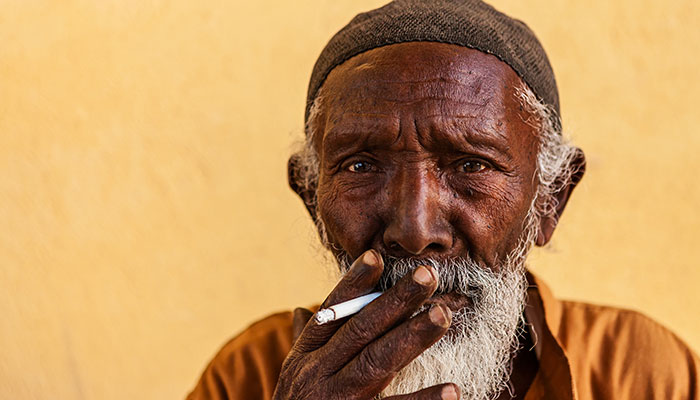A report, published yesterday by the WHO and the National Cancer Institute of the United States of America, found that over a trillion dollars will be lost every year to healthcare costs and lost productivity if the tobacco industry goes unchecked.
Policies to control tobacco use can also generate substantial new revenues for governments, it said.
Oleg Chestnov, the WHO’s assistant director for non-communicable diseases and mental health, said this evidences that the economic impact of tobacco on countries and the general public “is huge”.
“The tobacco industry produces and markets products that kill millions of people prematurely, rob households of finances that could have been used for food and education, and impose immense healthcare costs on families, communities and countries,” he said.
The biggest burden falls on low- and middle-income nations, home to around 80% of the world’s 1.1 billion smokers aged 15 or over. Approximately 226 million of those live in poverty.
Many tobacco manufacturers highlight the beneficial effects their business has for such economies. In a report from last year for example, an arm of one of the world’s largest manufacturers, British American Tobacco South Africa, outlined the tax revenues, jobs and investment its presence brings.
Tobacco companies are not alone in using such economic analysis to emphasise the benefits of their existence. However, Douglas Bettcher, WHO director for the prevention of NDCs, noted they often also use them to claim controls on tobacco products would have significant adverse economic effects.
Yesterday’s report works to counter that argument. It said controls would cause no net job losses and that efforts to reduce tobacco demand, including higher taxes and prices, marketing bans prominent health warnings, smoke-free policies and quitting smoking programmes, are highly cost effective.
In 2013-14, global tobacco excise taxes generated nearly $269bn in government revenues. Citing a 2016 study, the report said that governments stand to earn even more. If all countries were to raise tobacco excise taxes by around $0.80 per pack (42%), global revenues could increase by 47%, or $140bn. Meanwhile, this would prompt a 9% decline in smoking; equal to 66 million adults.
In many countries, smoking rates are stagnant or falling. But increases in some regions and the potential for increase in others threaten to undermine global progress in tobacco control, the WHO said.
Meanwhile, tobacco companies are consolidating their power. As of 2014, five tobacco companies accounted for 85% of the global cigarette market.
The WHO stressed that concerted efforts are needed to ensure progress in controlling tobacco use is maintained or accelerated. More funding could be committed – the WHO noted that less than $1bn of the $269bn in excise taxes governments earned in 2013-14 was invested in tobacco control.
As well as the cost-effective measures outlined above, the WHO also said governments should move to crack down on the illicit tobacco trade and suggested policies to limit the market power of tobacco companies could “hold promise”.
“Lives can be saved and economies can prosper when governments implement cost-effective, proven measures,” said Bettcher.
However, organisations like the International Tobacco Growers Association, which supports tobacco farmers around the world, note that the livelihoods of farmers, both small and large, could be threatened by declining tobacco markets.
One option would be to provide alternative businesses for farmers. However, ITGA members have pointed out that alternative crops such as coffee, tea or cotton do not pay as well and, unlike tobacco, do not thrive in difficult soil conditions.














